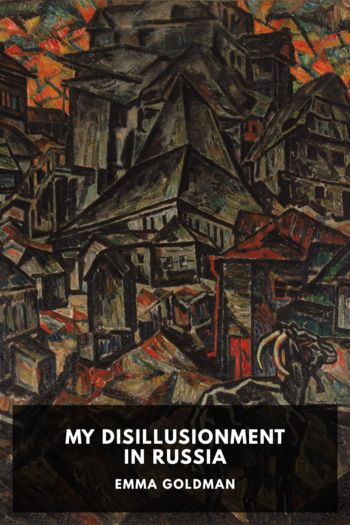Journey from St. Petersburg to Moscow Irina Reyfman (snow like ashes .TXT) 📖

- Author: Irina Reyfman
Book online «Journey from St. Petersburg to Moscow Irina Reyfman (snow like ashes .TXT) 📖». Author Irina Reyfman
“A personal attack, if it is damaging, is an offense. A personal attack that is truthful is as permissible as truth itself. If a biased judge rules in favor of a lie and the defender of innocence exposes his ruling to the world as crooked, if he exposes his trickery and falsehood, this is a personal attack but can be condoned. If he should call the judge ‘hired,’ ‘false,’ ‘stupid,’ this personal affront can be condoned. However, if he should take to calling him by the foul nicknames and curse words, as used in markets, this personal affront is malicious and unacceptable. It is not the role of the government, however, to defend a judge even when he has been disparaged for being right. It is not him as judge, but the offended man who will be the plaintiff in this matter. As for the judge, let his deeds alone vindicate him in the eyes of the world and those who named him a judge.* This is how one should think about a personal attack. It deserves punishment, but if it is printed will do more good than harm. When everything is in order, when verdicts always conform to law, when the law is founded on truth and oppression is contained, then and only then, perhaps, can a personal attack corrupt morals. Let us say something about good conduct and to what extent words can damage it.
“Obscene writings, full of lewd descriptions, breathing debauchery, whose every page and line gape with a titillating nudity, are harmful for the young and those of immature feeling. In fanning an already inflamed imagination, stirring the sleeping feelings and stimulating a heart that was quiet, they instill a precocious maturity, deceiving youthful senses about their resilience and laying the groundwork for their infirmity. Writings of this kind can be harmful; but they are not the root of corruption. If by reading them young men develop a taste for the ultimate satisfaction of amorous passion, they would be able to do nothing about it were it not for those who hawk their beauty. In Russia, such writings are still not in print, yet on every street in both capitals we see harlots garishly made-up. Action more than language corrupts, and example most of all. Itinerant harlots, granting their hearts at a public auction to the bidder, will infect a thousand youths with venereal disease and all this thousand’s progeny. But a book has not yet produced illness. Let the censure of female hustlers stand; it has no bearing on the works of the mind, even if debauched.
“I shall close with this: censorship of print matter belongs to society. Society will award a laurel crown to the author or will use his sheets for wrapping paper. This is just like the approval the public, rather than the director of the theater gives to a work for theater. Similarly, the censor awards neither fame nor infamy to a work that has seen the light. The curtain has risen, the gazes of all are riveted on the action; it pleases—they applaud, it does not please—they stamp and jeer. Leave stupidity to the discretion of public judgment: it will find a thousand censors. The most severe police are no match for a disgruntled public when it comes to stymying the dregs of ideas. They will listen to these ideas one time, then these ideas will die never to be resurrected. But if we acknowledge the uselessness of censorship and, moreover, its harmfulness in the kingdom of knowledge, then let us recognize the widespread and unlimited benefit of freedom of the press.
It seems proof of this is not needed. If everyone is free to think and to express his thoughts unhindered, then it is natural that everything that is conceived, invented, should be known; what is great will remain great, the truth will not be hidden. The rulers of nations will not dare to stray from the path of truth and will fear lest their conduct, malice, and cunning be exposed. On signing an unjust sentence, the judge will begin to tremble and will tear it up. Anyone who has power will be ashamed to use it for the satisfaction only of his whims. Theft that is hidden will be called theft, murder that is covered up will be called murder. The wicked, all of them, will take fright at the severe gaze of truth. Tranquility will be genuine in the absence of a grain of fermentation. At present, only the surface appears smooth, but the silt lying at the bottom stirs up and obscures the clarity of the waters.”
When saying goodbye to me, the critic of censorship gave me a small notebook. If, reader, you are not prone to boredom, read, then, what lies before you. If, however, it should happen that you yourself belong to the censorship committee, then





Comments (0)